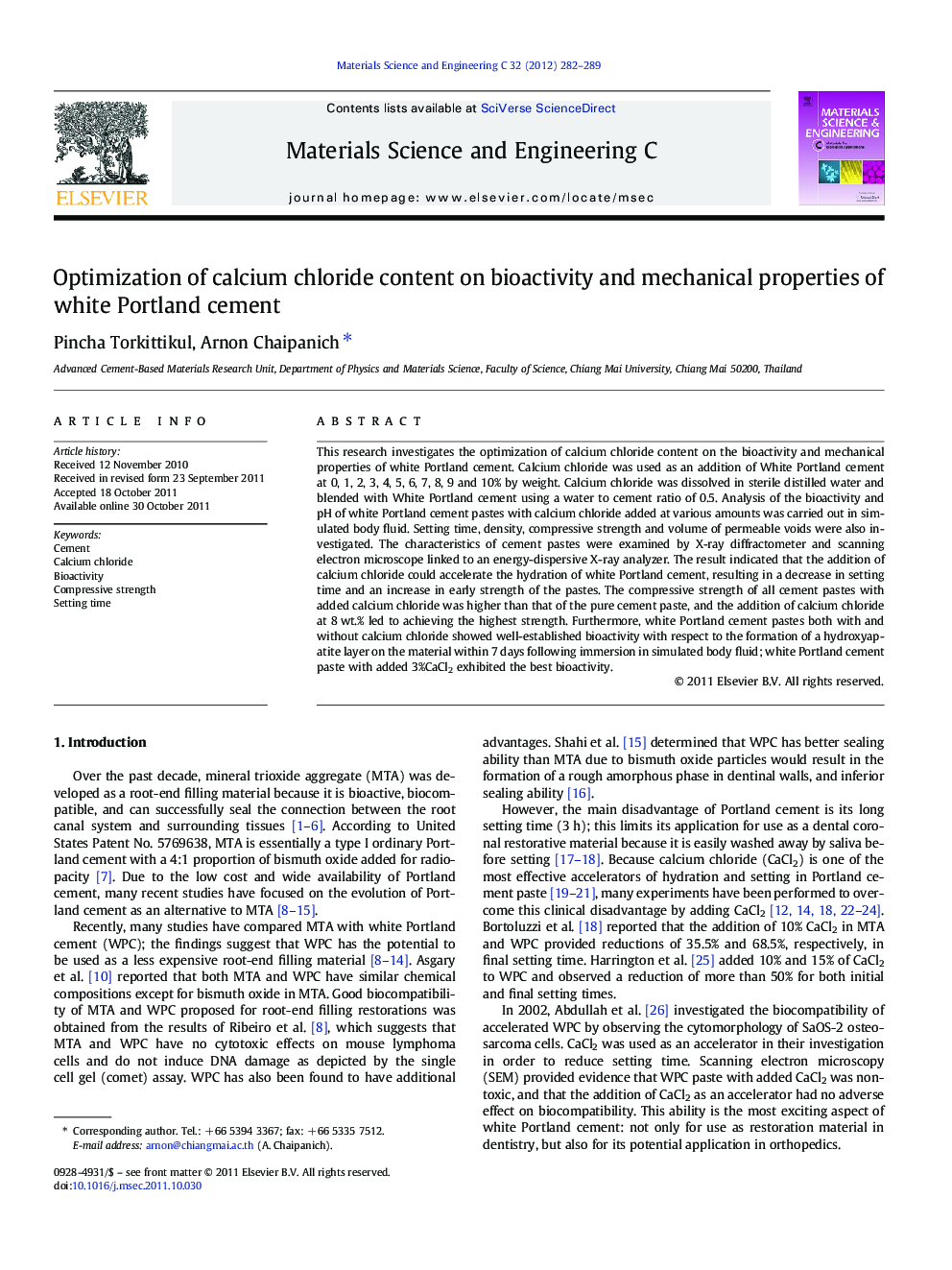| Article ID | Journal | Published Year | Pages | File Type |
|---|---|---|---|---|
| 1429582 | Materials Science and Engineering: C | 2012 | 8 Pages |
This research investigates the optimization of calcium chloride content on the bioactivity and mechanical properties of white Portland cement. Calcium chloride was used as an addition of White Portland cement at 0, 1, 2, 3, 4, 5, 6, 7, 8, 9 and 10% by weight. Calcium chloride was dissolved in sterile distilled water and blended with White Portland cement using a water to cement ratio of 0.5. Analysis of the bioactivity and pH of white Portland cement pastes with calcium chloride added at various amounts was carried out in simulated body fluid. Setting time, density, compressive strength and volume of permeable voids were also investigated. The characteristics of cement pastes were examined by X-ray diffractometer and scanning electron microscope linked to an energy-dispersive X-ray analyzer. The result indicated that the addition of calcium chloride could accelerate the hydration of white Portland cement, resulting in a decrease in setting time and an increase in early strength of the pastes. The compressive strength of all cement pastes with added calcium chloride was higher than that of the pure cement paste, and the addition of calcium chloride at 8 wt.% led to achieving the highest strength. Furthermore, white Portland cement pastes both with and without calcium chloride showed well-established bioactivity with respect to the formation of a hydroxyapatite layer on the material within 7 days following immersion in simulated body fluid; white Portland cement paste with added 3%CaCl2 exhibited the best bioactivity.
► Optimization CaCl2 content on the bioactivity and mechanical properties. ► CaCl2 was used as an addition at 0, 1, 2, 3, 4, 5, 6, 7, 8, 9 and 10% by weight. ► CaCl2 resulted in a decrease in setting time and an increase in early strength. ► Addition of 3%CaCl2 exhibited the optimum formation of hydroxyapatite.
